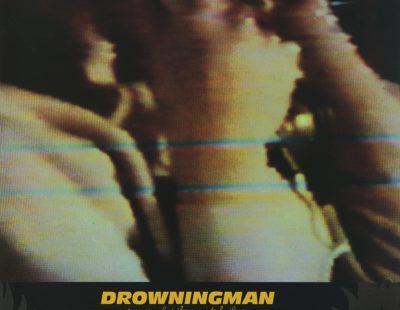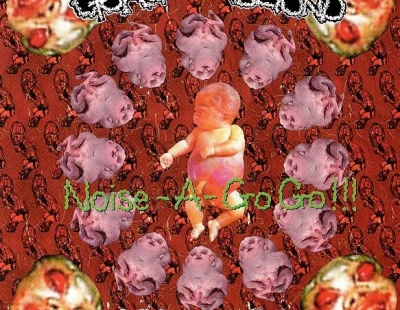
Welcome back to The Lazarus Pit, a look back at should-be classic records that don’t get nearly enough love. Today we’re looking at Axewitch’s 1984 record Visions of the Past. This second album from the Swedish trad/NWOBHM band is an excellent mean median example of a more or less forgotten metal album from 1984, full of heart—overflowing with heart—and embodying everything that made the era so exciting.
Now, a note: anyone following this column over the past few months could be forgiven for accusing me of falling into a sort of doey-eyed nostalgia over poverty metal that really wasn’t exactly turning a lot of heads at the time. But you have to readjust that lens: there are only so many poverty metal albums from 1984 (granted, that number is pretty large), and that’s a time and place that can’t be recreated now. So, sure, I suppose this is a lesson in re-evaluation, a look back at some records that are not top tier, I’m not denying that, but upon closer investigation (something none of us have done with this record in years) contains a certain magic in it that is lost in time, and, indeed, lost to the second tier of metal bands of the era.
So, with that context in mind, put this one on and get it started with the awesome opening title track. Man, there’s a chorus, the unexpected turn in melody when it hits never failing to get the dopamine, and adrenaline, flowing. The song rules—it falls somewhere between cold gothic trad and NWOBHM, I’ve heard countless retro trad bands follow its formula exactly, and it’s a sound that more or less reaffirms life when you need it to. Based on the strength of this song, the discount bins were not were Visions of the Past should have ended up.
“Give them Hell” follows that up with a speedy trad metal rocker with economic riffs flying hard and mighty, a smart choice for a second cut here. “Tonight” just makes you want to party hard like it’s a summer Saturday night in 1984, maybe 1985, all over again. It turns its back on the cover art and is concerned less with the slaying of the dragon than it is with letting the beer flow freely, and Axewitch make you realize, yeah, there’s time for both. “Hot Lady” continues this line of thought, as the band threaten to get a bit too stoopid, but their charm keeps them above the lowest common denominator here, even if the end result is a bit unremarkable.
“Stand Up” kicks off side B with a brisk and energetic anthem, one that, with a bit of convincing, wouldn’t be wildly out of place on a prime-era Accept record. Love the smart songwriting come chorus-time; this must have sounded amazing when played live around the time of this record’s release.
“Heading for a Storm” is ambitious and the band gets through the mellower parts with no shortage of gusto, even if they don’t quite hit the mark; when it picks up, however, it packs a perfect metal punch, solid and sturdy, checking off all the boxes. It’s a bit much at 6:21, but it’s got spirit. “Born In Hell” has both a gallop part and a dirgey swamp part to it; “Time to Live” has a bit of late-album boogie; “Evil Circle”’s opening riff is absolute, 100-percent pure metal glory.
Again, I’m not here to say every metal record released in the ’80s with a castle on the cover is good even though it’s imperfect… but, fuck it, that’s sort of the conclusion I’m reaching here after writing about this stuff for so long. But, also again: it’s not just nostalgia, it’s the realization that these records are time capsules of an era that can’t be replicated. There are some great bands mining trad territory out there today, and they get big horns up from me, but there’s just something special, warts and all, about these old records, young bands shooting high and hard, unaware of what glories or disasters the future may hold as they explore this exciting sonic terrain and, in some very small way, help lay down the framework of the modern metal we all live and die for today.






